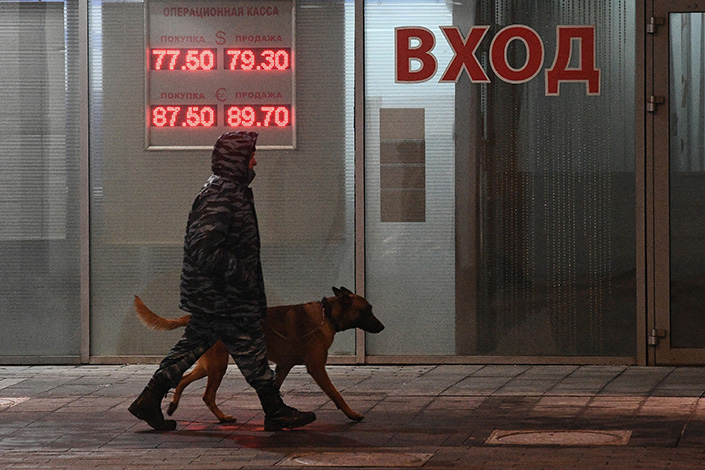
All eyes are now on how the Russia-Ukraine crisis will unfold, especially after the fresh round of U.S. sanctions announced Tuesday targeting Russia’s overseas sovereign debt sale and some of the country’s elites. Financial markets are on edge. If these geopolitical tensions persist, we believe major currencies, including the Chinese yuan, will be affected under three main channels.
Risk sentiment channel
The intensifying tensions between Russia and Ukraine will lead to a decline in risk assets represented by stocks, and currencies with a high correlation with risk assets will be negatively affected. Among major currencies, the Australian dollar, Canadian dollar and New Zealand dollar have the strongest correlation with their stock indexes, while Asian currencies such as the Singapore dollar, South Korean won and Indonesian rupiah are more sensitive to stock indexes. The Japanese yen, Malaysian ringgit, Philippine peso and Chinese yuan are less sensitive to stock indexes.
Channel of economic and trade relations with Russia
If Western countries continue to impose sanctions on Russia, Russia’s foreign trade may be negatively affected, and countries with a high trade volume with Russia could face greater currency risks. In terms of the proportion of trade with Russia in their economy, Eastern European countries and Turkey could bear the brunt, followed by Western European countries. Among Asian countries, South Korea, Malaysia, China and Singapore have relatively high economic and trade exposure to Russia.
Read more Caixin’s coverage about the Ukraine crisis
Crude oil import channel
The ongoing crisis may lead to high energy prices represented by that of crude oil, which will increase the burden for countries that are net importers of energy, and put stress on their exchange rates. In particular, industrialized countries in Europe and Asia, which import a lot of energy from Russia, could suffer the most.
In general, the currencies of economies that are energy importers, have a close economic relationship with Russia, or have a high correlation with stock market trends are more likely to suffer from the deterioration of the situation between Russia and Ukraine. Looking at the structure of the foreign exchange market, Eastern European currencies and the Turkish lira would bear the brunt, followed by other European currencies such as the euro.
Among Asian currencies, the South Korean won and Singapore dollar may be subject to more negative effects. Among safe-haven currencies, the Japanese yen could be the one to benefit the most from the situation. This is because the yen is negatively correlated with the trend of global interest rates and risk appetite, and economic and trade activities between Japan and Russia have been at a relatively low level.
As for the yuan, we believe that it could be affected by two factors: On the one hand, China is an energy importer and has close economic and trade relations with Russia. On the other hand, Russia may diversify its allocation of foreign exchange reserves and increase its holdings of yuan assets after being sanctioned.
In the short term, the negative impact of factors such as worsening risk sentiment and increased energy import costs on the yuan exchange rate may overshadow the impact of the increase in yuan assets in Russia’s foreign reserves. Therefore, in general, the escalation of conflict could have a negative impact on the yuan exchange rate. However, considering that China’s economy is large and its trade with Russia accounts for only a small proportion, the sensitivity of the yuan exchange rate to the Russia-Ukraine tension may be lower than that of other Asian currencies.
Peng Wensheng is chief economist at investment bank China International Capital Corp. Ltd.
This article has been edited for length and clarity.
Kelsey Cheng contributed to the translation.
Contact editor Michael Bellart (michaelbellart@caixin.com)
The views and opinions expressed in this opinion section are those of the authors and do not necessarily reflect the editorial positions of Caixin Media.
If you would like to write an opinion for Caixin Global, please send your ideas or finished opinions to our email: opinionen@caixin.com
Get our weekly free Must-Read newsletter.







